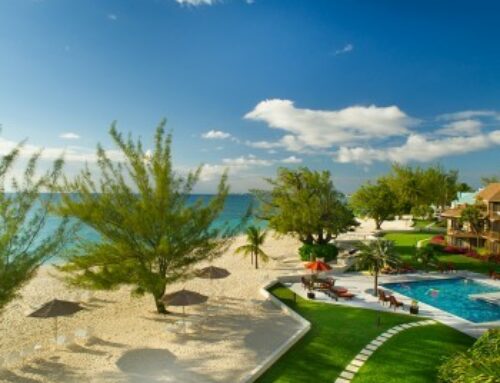Contrary to recent allegations made by the World Society for the Protection of Animals (WSPA), the Cayman Turtle Farm (CTF) says that handling of captive turtles at the facility is not a threat to human health, the farm’s track record confirms that, and that a recent independent expert assessment of the Farm categorically backs up that statement.
The CTF says it is very disappointed that, despite its recent meeting with the WSPA and listening to their concerns, WSPA continues their smear campaign based on a WSPA-funded and biased “short report” released just days after the WSPA and CTF stated that they remain committed to dialogue.
In a recent press release, WSPA states that a case study found people interacting with captive turtles risk health issues, but CTF Managing Director Tim Adam says that such allegations are misleading and sensationalised.
“These latest allegations are another clear effort by the WSPA to undermine the business of the CTF in WSPA’s on-going goal to shut down our operations, since their campaign thus far has been unsuccessful in achieving that aim,” he states. “WSPA told us from the outset that they want to stop people being able to touch or hold turtles, and they want us to stop farming turtles to supply the local demand for turtle meat. Apparently WSPA has funded a report hoping it will help them achieve those objectives.”
Mr Adam further states: “The Cayman Turtle Farm is a leading facility in turtle research and conservation and follows and enforces safe turtle handling protocols. These protocols are communicated to our guests through signage and spoken instructions. All turtle handling is supervised, and the established protocols follow the US Centers for Disease Control and Prevention guidelines for the safe handling of reptiles.”
Mr Adam goes on to say that in over 40 years of operation at the CTF, there has never been a single known recorded case of illness or disease transmitted to any of its visitors (who number over two hundred thousand each year and millions in total) through contact with the turtles, even though most guests will directly interact with the animals. Nor indeed has there been any recorded case of turtle handling causing illness for staff members, many of whom have worked at the Farm for several years with daily close interaction with turtles.
“The CTF sees literally hundreds of interactions per day between guests and turtles, with guests of a range of ages,” he confirms. “The fact that we have never seen any cases of disease transmission is supported by the instructions and education we give to our guests on the property regarding the safe handling of turtles – both for the comfort and safety of our guests and also for the welfare of the turtles in our care.”
Last year CTF upgraded signage, hand-washing and sanitising facilities, and the level of supervision at the very popular “turtle touch tanks.” In December last year the CTF voluntarily committed to a review of its operations by an independent inspection team of internationally-recognised turtle experts and while the report highlighted some areas for improvement in the non-public “production” side of the facility, several areas of the review applauded the CTF for its work. Specifically, the results of the independent inspection did not find any risk of turtle handling to the health and safety of CTF guests. The report categorically states with regard to the handling of animals by guests (including safety of both animals and guests): “Given changes to operating practices where handling is supervised and hand washing is offered and encouraged, the panel had no concern in this regard.”
The full report can be found at http://www.turtle.ky/mediareleaseinspectionfindings
By contrast, the CTF states that the methods WSPA used in its case study are incomplete, as their research in Cayman was very limited and conducted as part of an “undercover investigation” without the cooperation of the CTF, so they did not have the full access that the independent inspection team had. In addition, despite repeated requests from CTF the WSPA has refused to share its research with CTF prior to releasing it to the media.
CTF points out that contrary to what was stated in at least one news item, the research was not conducted by the Royal Society of Medicine. The research paper was produced by a team of three authors funded by the WSPA and published on an online journal which is a ‘Short Reports’ website associated with the Royal Society of Medicine Journal. The site is an online free access sister site to the main journal, and requires authors to pay a fee to have their work published.
It should also be noted that the paper’s lead author Clifford Warwick has been affiliated with the WSPA and is cited in its “investigative” reports on the Cayman Turtle Farm, yet both Mr Warwick and the WSPA have consistently refused to release his research to the CTF despite repeated requests. Conversely, the CTF has openly supplied the full independent inspection report to the WSPA.
“We have released the full report in its entirety,” Mr Adam says. “We are frankly disappointed that the organisation continues to misrepresent the situation at the Cayman Turtle Farm in order to damage our reputation and impede our work.”
The CTF interacts with and educates over 200,000 people each year about marine life, especially Green Sea Turtles, underscoring the vital role it plays as an internationally recognised research and conservation organisation. The CTF has enabled some 150 scientific papers that have been either published or presented over the years. In addition, the CTF receives requests each year for educational internships and research partnerships and has on-going research partnerships in place. The CTF has overseen the release of over 31,000 turtles into the wild since it first began operations and there is collated evidence of increased numbers of turtles returning to the Cayman Islands to nest.
“At the Cayman Turtle Farm we are committed to the health, safety and well-being of both our guests and our animals and we continue to strive for the highest standards in all aspects of the work we do – conservation, reproduction, display and education,” Mr Adam says. “The independent inspection of our operations confirms that because of the steps we have taken, there are no safety concerns for humans interacting with turtles at the CTF and we look forward to continuing our work and attracting guests so as many people as possible may have the opportunity to learn more, enjoy and better appreciate these magnificent creatures.”
Caribbean News Now – 7 February 2013

